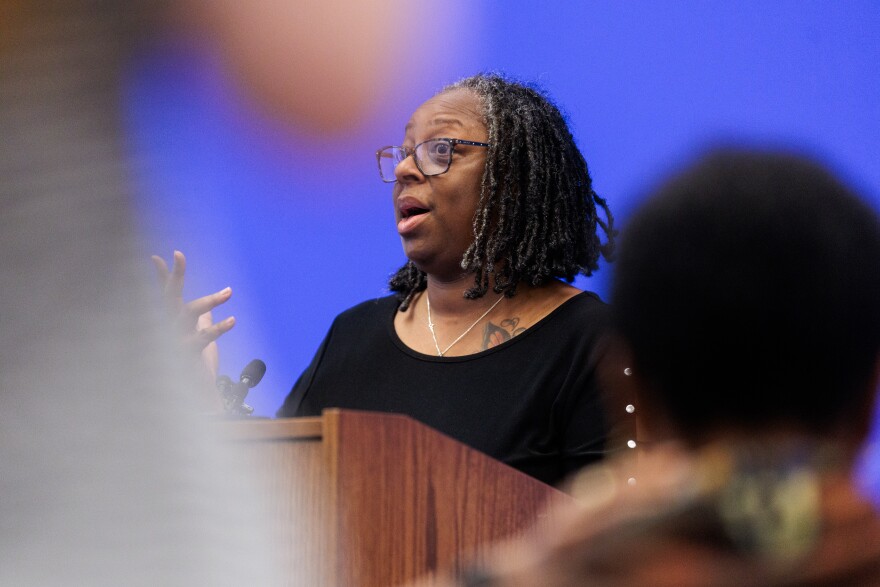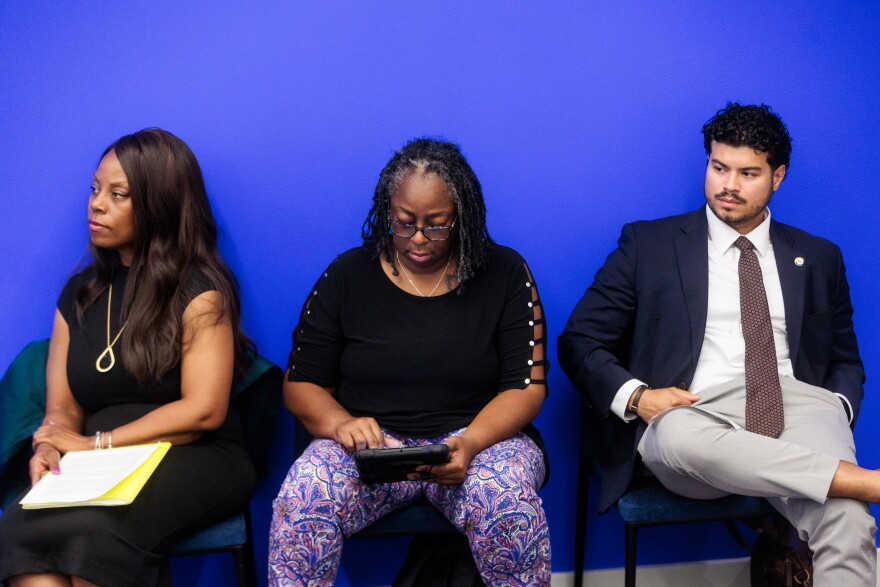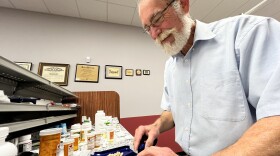Virginia Medicaid commissioned a prenatal care secret shopper survey in 2023 to better understand the experience of people trying to schedule an OB-GYN appointment during pregnancy.
The survey, which was published in April 2024, found that more than 95% of callers seeking prenatal care through Medicaid were unable to set up a visit with a care provider.
More than one-third of the callers were unable to reach a doctor on a Managed Care Organization’s list of available providers. And even when prospective patients were able to get in touch with providers, some didn’t offer prenatal services or weren’t accepting new patients.
Earlier this week in Richmond, maternal care advocates called for changes to be made.
Members of the PUSH Maternal Health Coalition said at a Tuesday event that Virginia’s Medicaid Managed Care programs are failing pregnant people in the state, and they’re calling on Virginia Medicaid, which contracts with MCOs, to make improvements.
“As a Black mother, I am deeply disturbed and concerned by these findings,” said the Rev. Dr. LaKeisha Cook, co-executive director of the Virginia Interfaith Center for Public Policy. “It is unimaginable that people across the commonwealth who need prenatal and maternal health care can not receive adequate services from providers receiving state resources.”
The six Managed Care Organizations operating in Virginia in 2023 made $500 million in profit from their Virginia Medicaid contracts in the first three quarters of the year.
“It sickens me to think what it must feel like being pregnant — dealing with the anxieties that come along with pregnancy, getting a referral to a place that should provide care, only to be faced with multiple obstacles,” Cook said. “Instead of easing anxieties, the stress of these new patients and new parents often become compounded.”
Victoria Richardson, a staff attorney with the Virginia Poverty Law Center, called the racial disparities for care uncovered in the report “devastating” for Black and Hispanic women.
Richardson said that nearly 17% of Black women and nearly 26% of Hispanic women on Medicaid had prenatal care that was inadequate — or sometimes no care at all.

Nichole Wardlaw, a Black midwife affiliated with the Virginia chapter of the American College of Nurse Midwives, said she’s experienced racism in maternal care and works with Black women who share her experiences. She said her patients are desperate to find quality care.
“I received phone calls of clients that are dying to transfer into my practice, because they don’t feel seen or heard,” Wardlaw said. “They feel like they’re a number. They feel like no one’s listening to them.”
Maternal care advocates are seeking policy change in the 2025 General Assembly session. Stephanie Spencer, founder and executive director of Virginia’s Urban Baby Beginnings, wants the state legislature and Virginia Medicaid to support a “health hub” model approach to prenatal care.
Health hubs provide wraparound social support services to pregnant and postpartum people, emphasizing an open access policy that accepts all patients. The hubs provide doula support, assistance in navigating pregnancy and coordination with perinatal specialists. The hubs also emphasize culturally sensitive maternal health care for patients.
“We really have a unique opportunity to continue to make a significant impact on maternal and infant health,” Spencer said. “By securing this funding and support, we can ensure that our families receive the comprehensive care that they deserve.”

Richardson, from the Virginia Poverty Law Center, said Virginia should follow 30 other states by expanding maternal health benefit coverage, as recommended in 2023 by a state task force. The coverage expansion would allow pregnant people deemed eligible for Medicaid to get access to immediate prenatal care.
“It’s just an easier and quicker way to ensure that pregnant women who are already presumably eligible can access their benefits earlier,” Richardson said. “Based on the secret shopper survey, instituting this policy is urgently needed.”
Other requests from advocates include monthly data reports from MCOs working with Virginia Medicaid and efforts to recruit and train a more diverse maternity care workforce.












